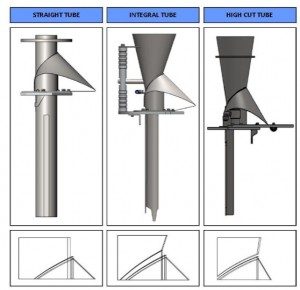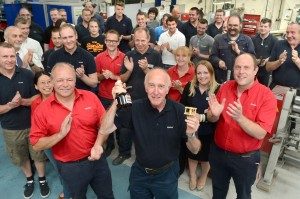Colegate-Palmolive has recently announced new commitments to recyclable packaging. In particular, the company has spoken out against the increasing adoption of non-recyclable flexible packaging.
More and more products are now being sold in flexible, non-recyclable plastic packets. Raisins were once commonly packaged in little cardboard boxes, but now they use flexible packaging. Likewise, drinks traditionally come in bottles, which are usually made of glass or PET, or else in aluminium cans. All of these can be economically recycled. But now, some products such as Capri Sun, which is immensely popular with children around the world, come in flexible packaging that is difficult or impossible to recycle. All in all, 2012 saw sales of products in such flexible packaging reach levels of over US$26 billion in the US alone.
So what has made companies invest in the formers, forming tubes and other packaging machine accessories necessary to completely change their packaging to a non-recyclable option?
Cost, of course, could be one factor. Flexible packaging is often cheaper to produce, offsetting that initial investment in new forming sets and packaging machine accessories. Nonetheless, it is surprising in these days of environmental awareness and increasing corporate responsibility to see such a large shift away from recyclable materials.
However, some companies may have made the change with genuinely good eco-intentions. In the short term, manufacturing this packaging generates lower levels of emissions and uses less material. However, while this makes sense in the short-term, the fact that these products cannot be easily recycled offsets the initial advantages. There are few disposal options available except for incineration or landfill, and then the manufacturing process for new packaging begins again from scratch.
Indeed, misguided views on the eco credentials of flexible packaging are making their way to the very heart of the packaging industry. In a recent interview, green design advisor and sustainability architect William McDonough said “I see packaging awards being given to these pouches as more efficient containers of, say, a cereal.” He then pointed out that this product, traditionally placed in an easily-recycled cardboard box, is now “wrapped in seven plastics with undefined inks and metallized polymers. It doesn’t have a recycling symbol on it because you could never recycle it… And yet it’s being put forward as a more efficient package.”
Now Colegate have taken their stance against this non-recyclable packaging, they seem to mean business. For three out of four product categories in the company’s portfolio, they have committed to making all packaging recyclable by 2020. For their remaining product category, oral care, they are working on development of a recyclable toothpaste tube, or a new kind of recyclable packaging to serve the same purpose, so that the remaining products can follow suit.









